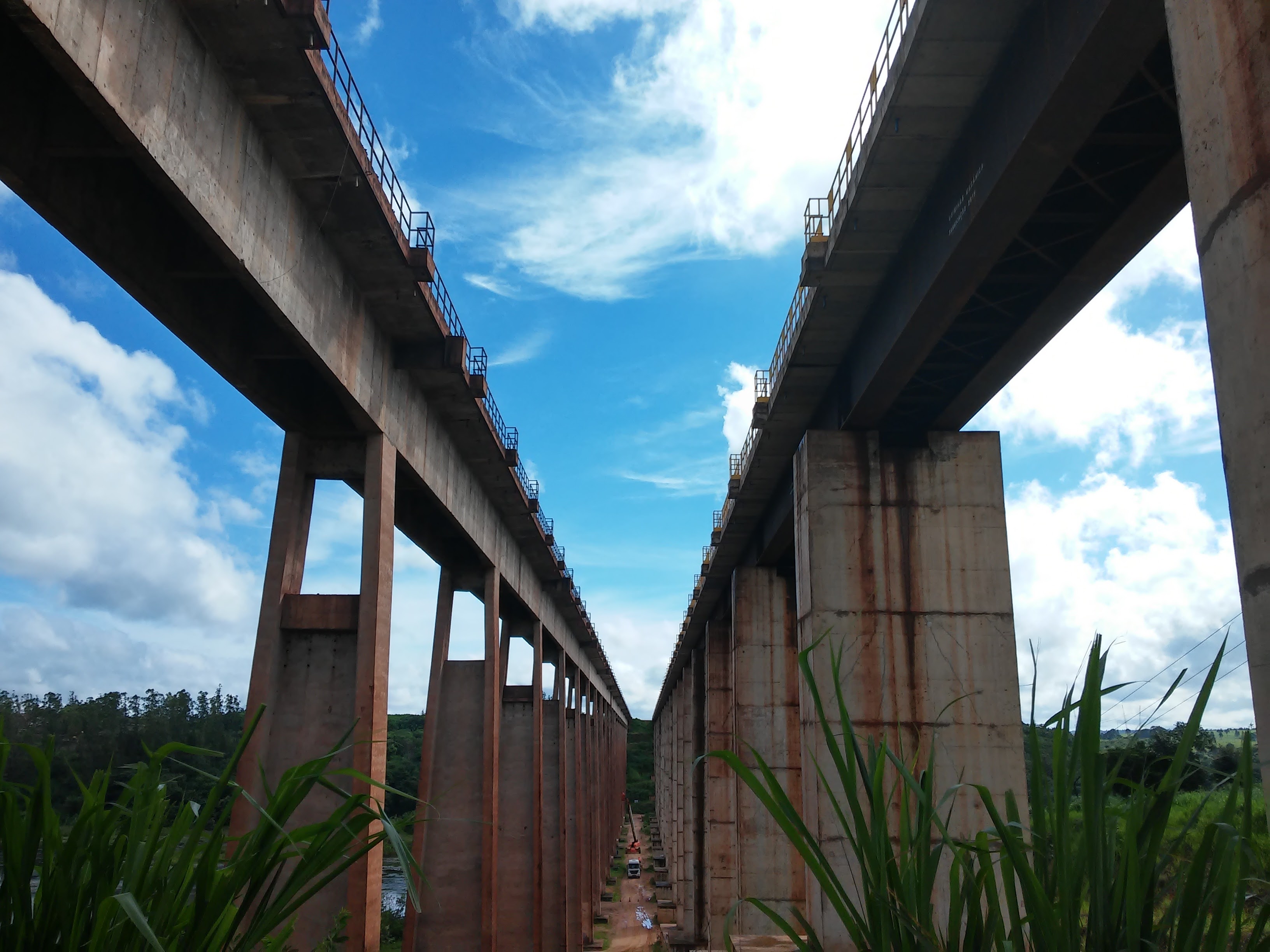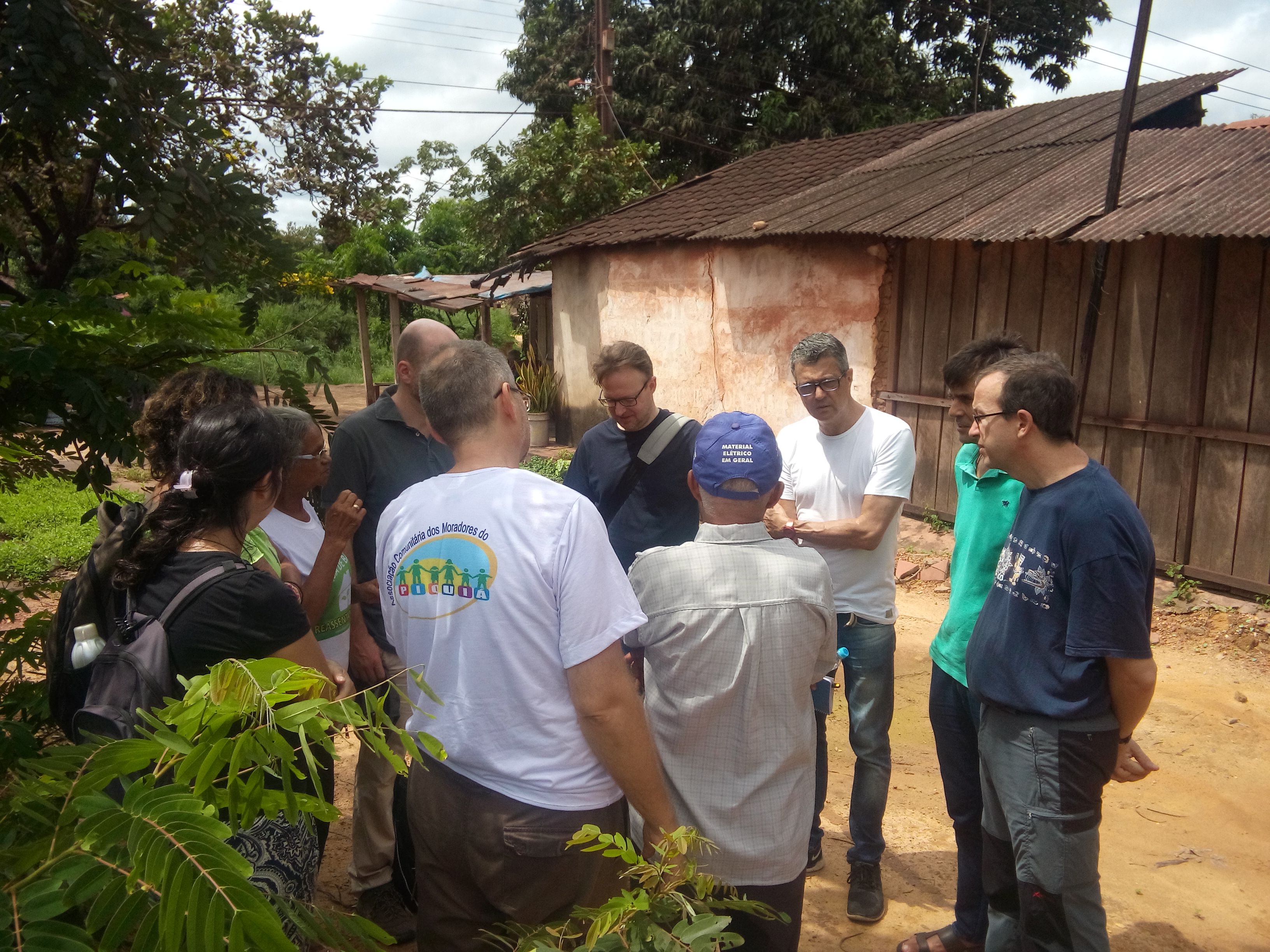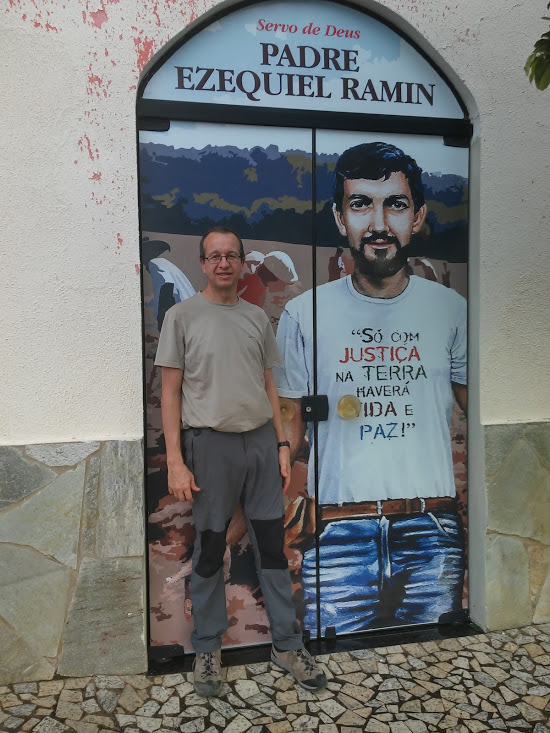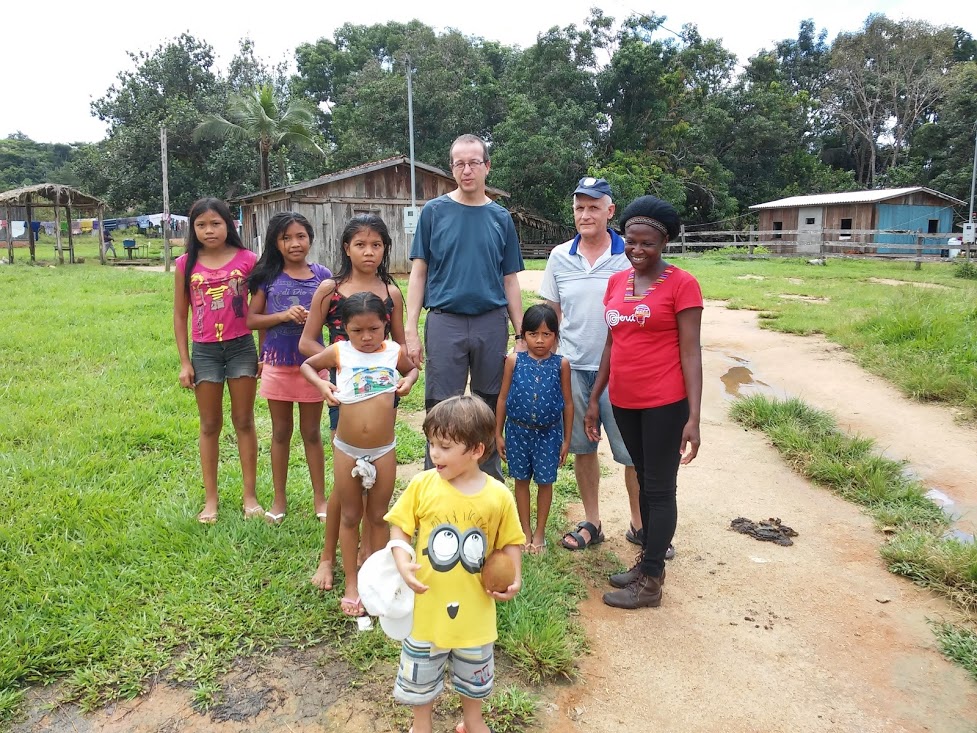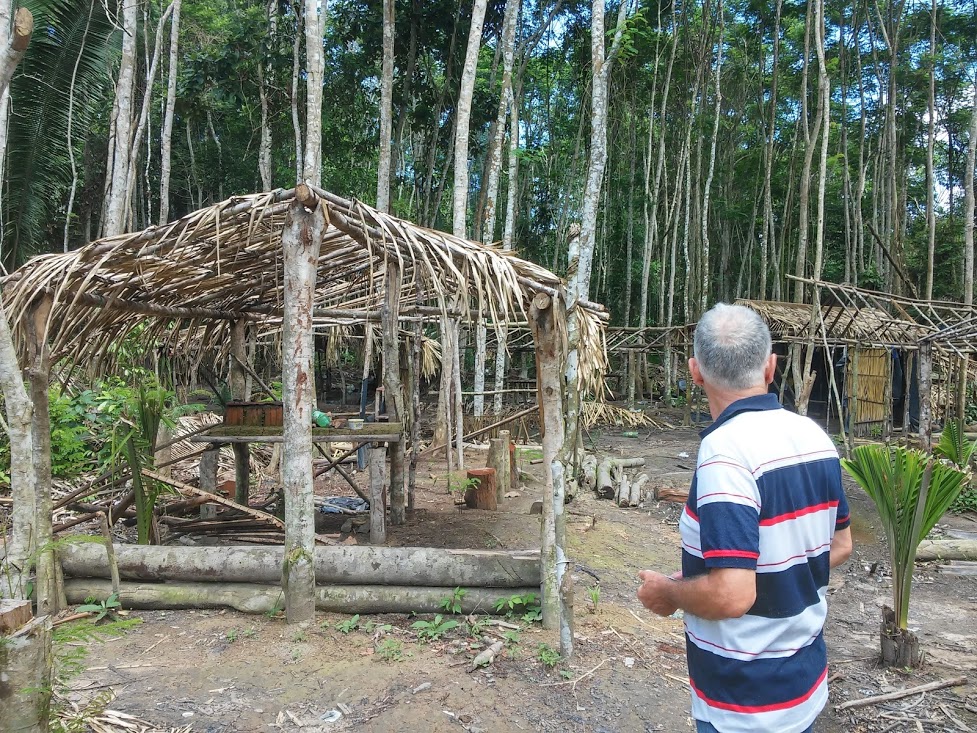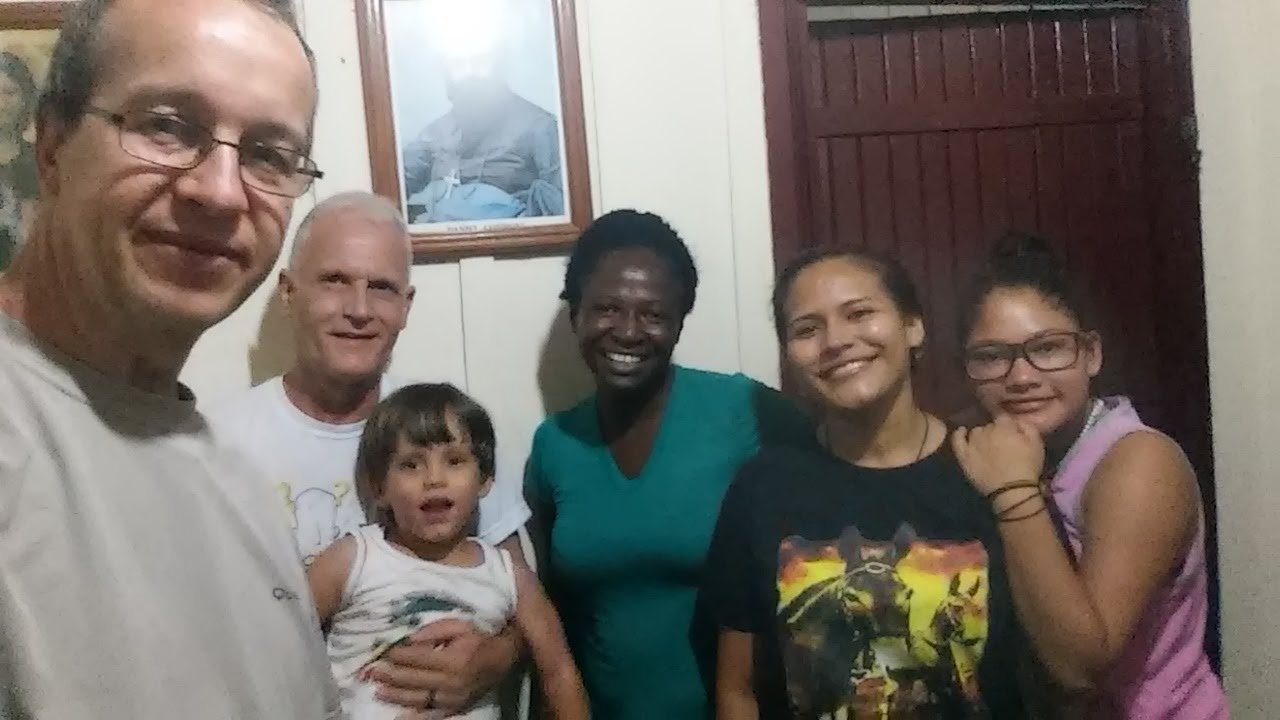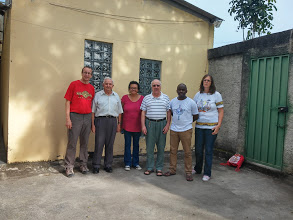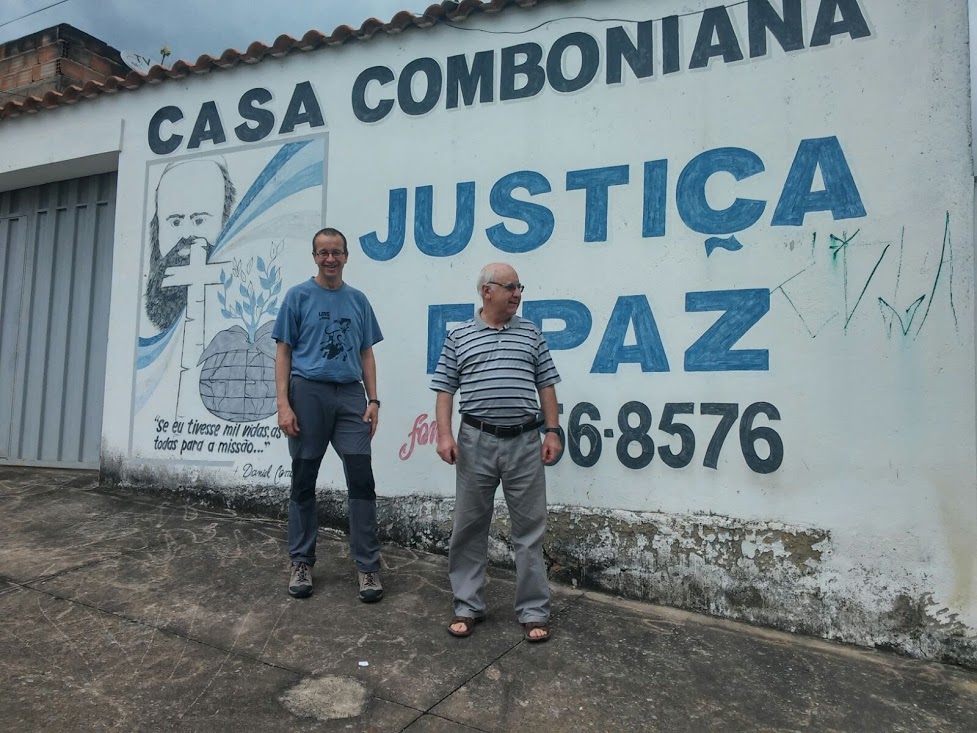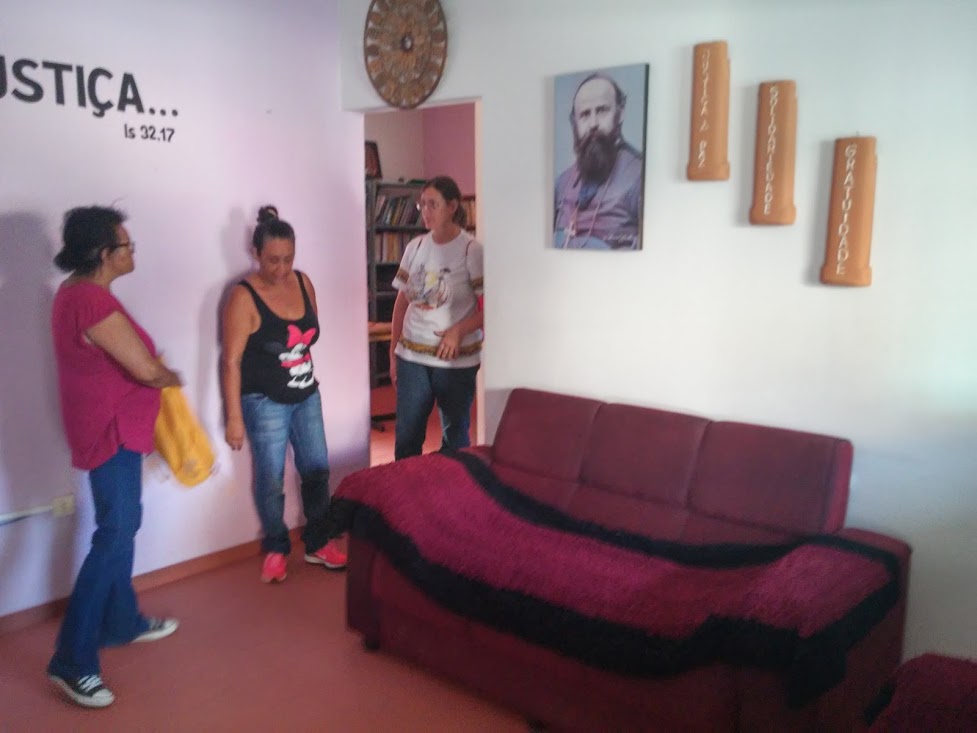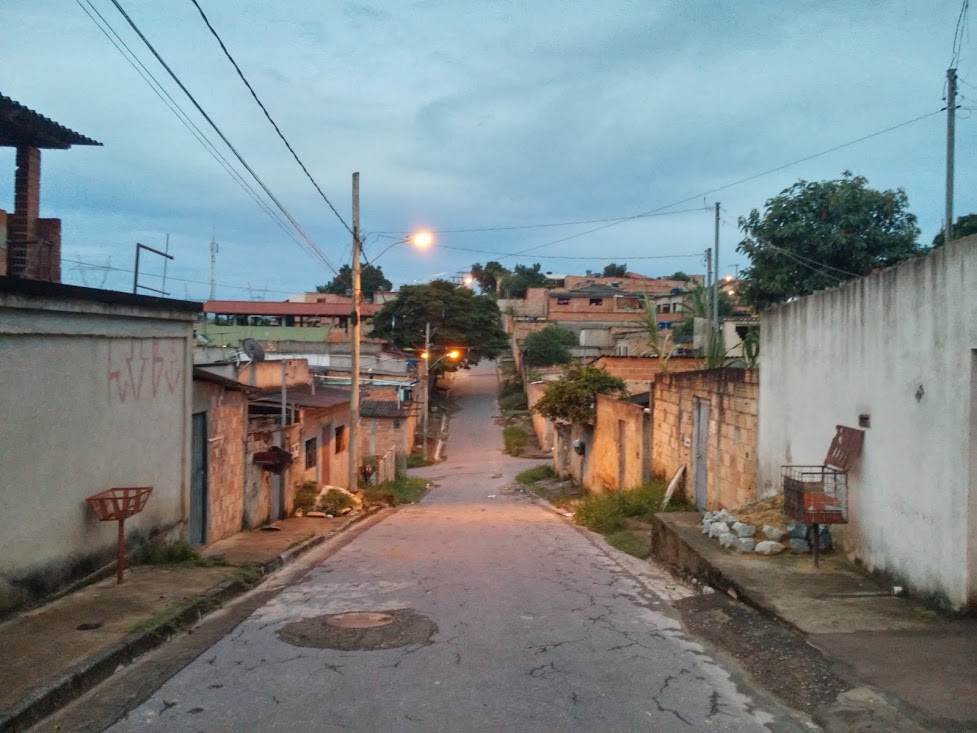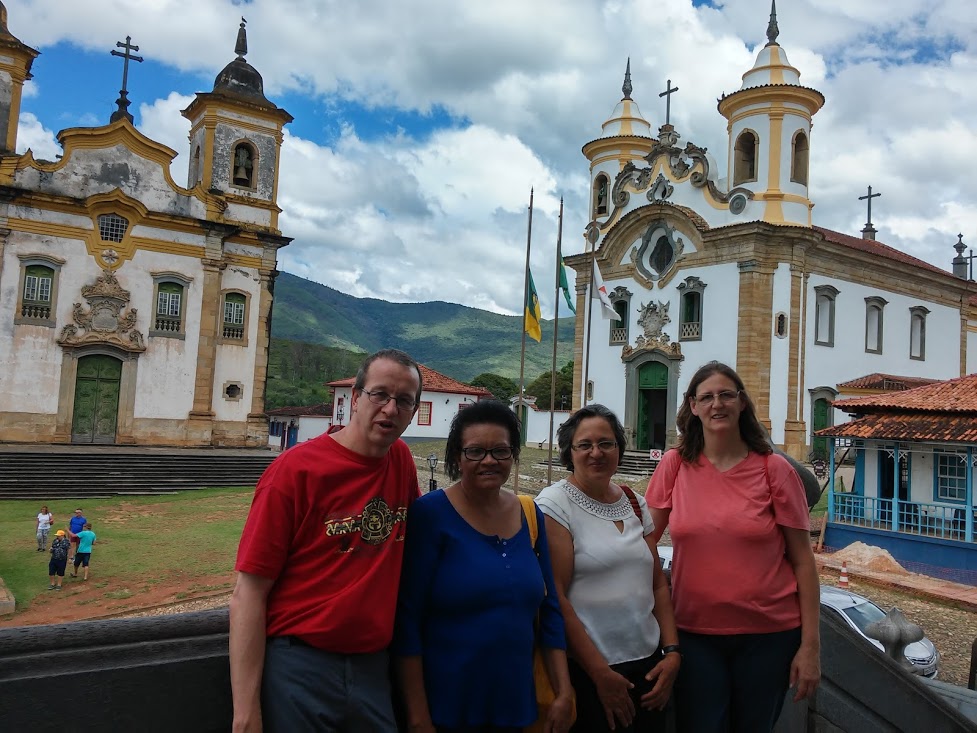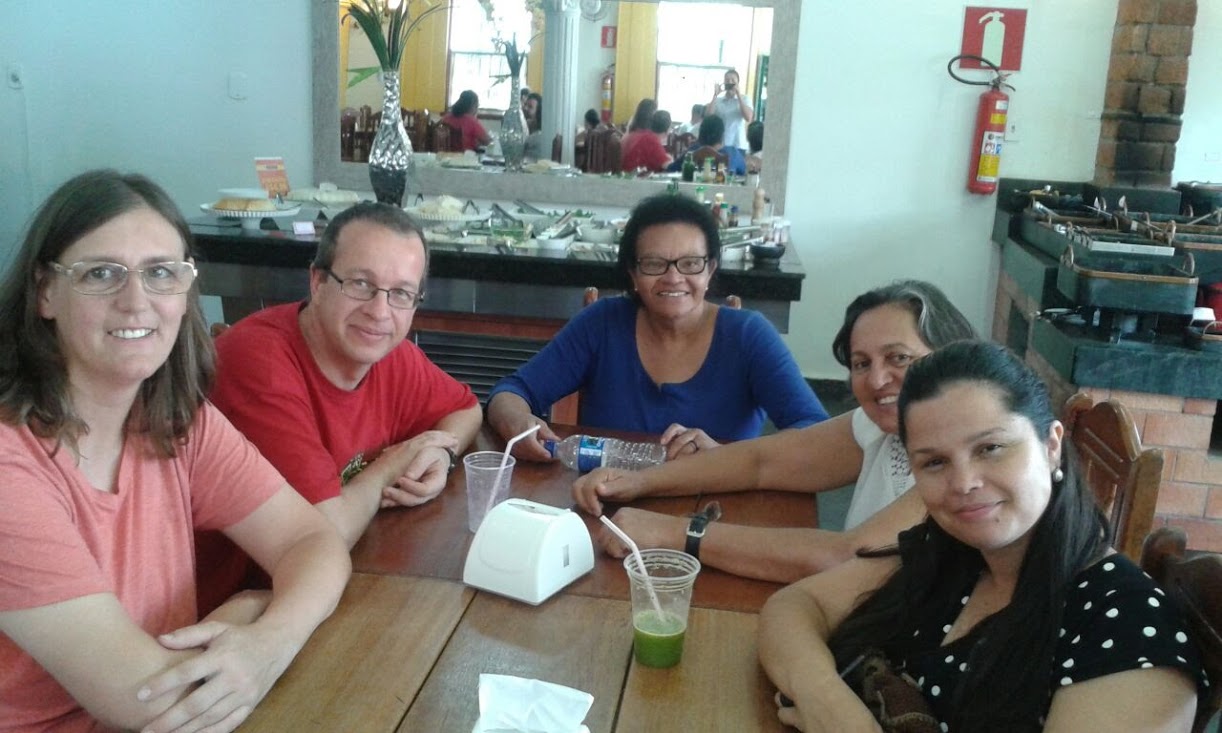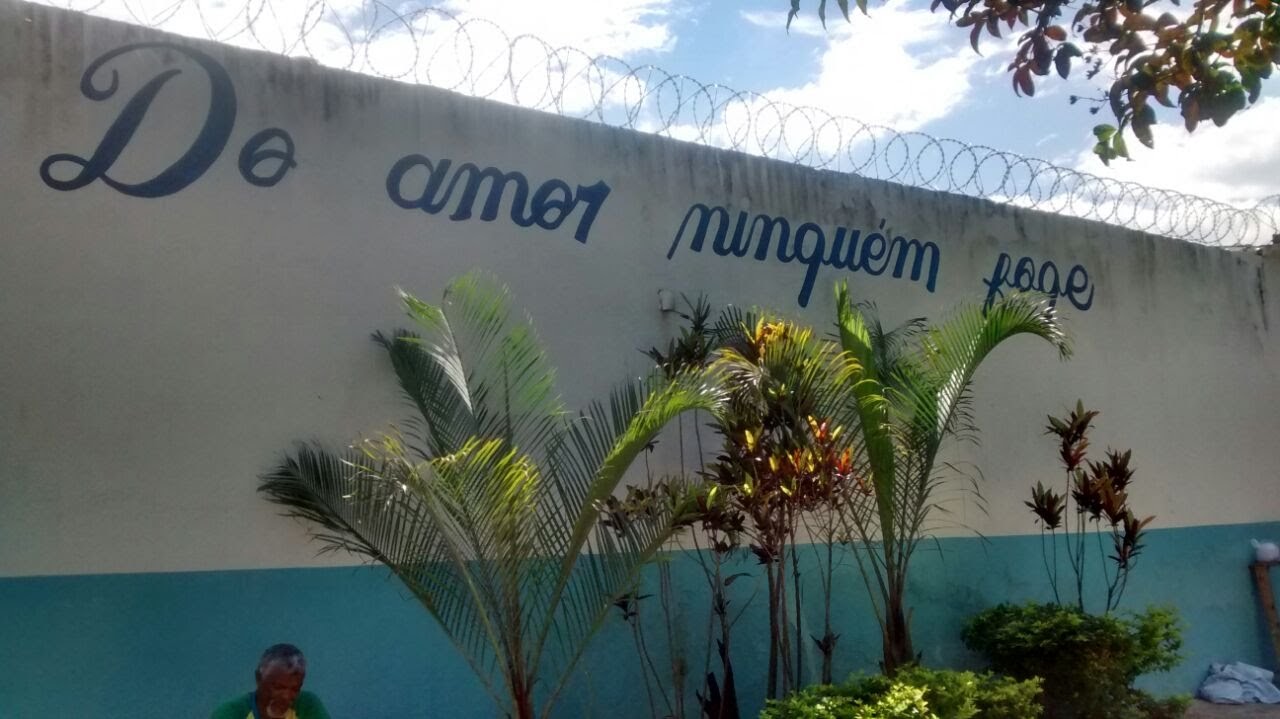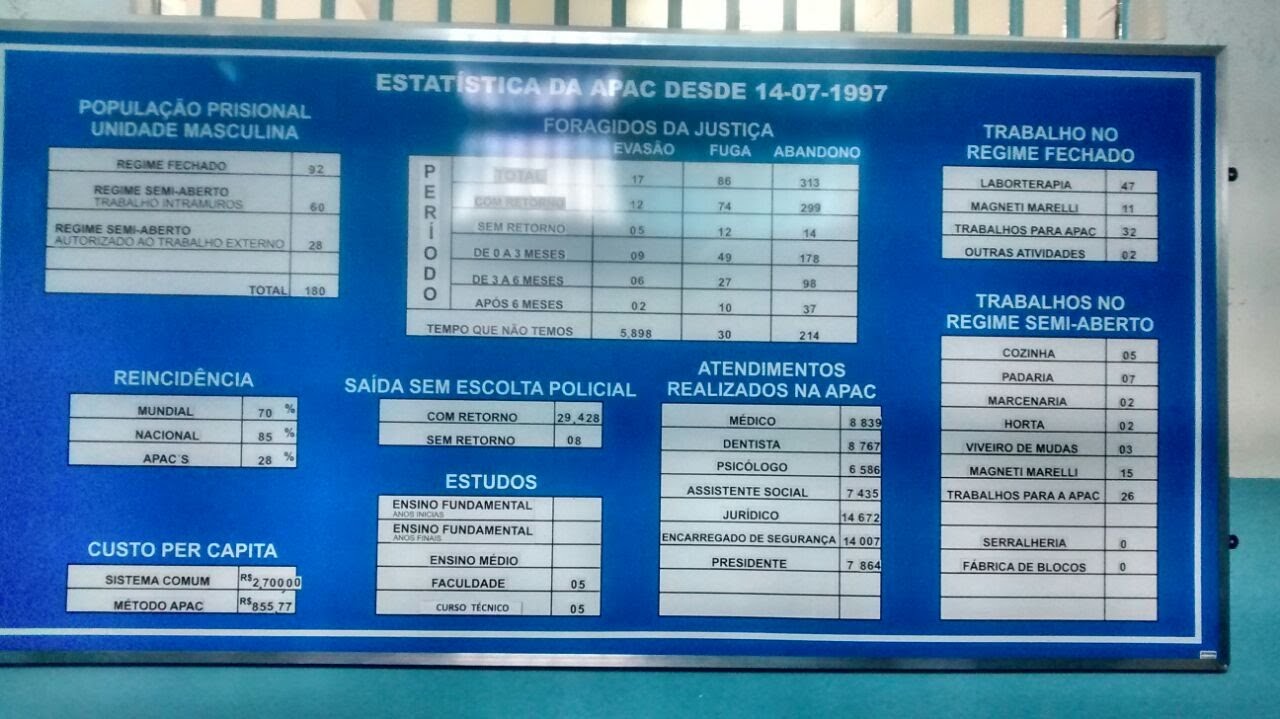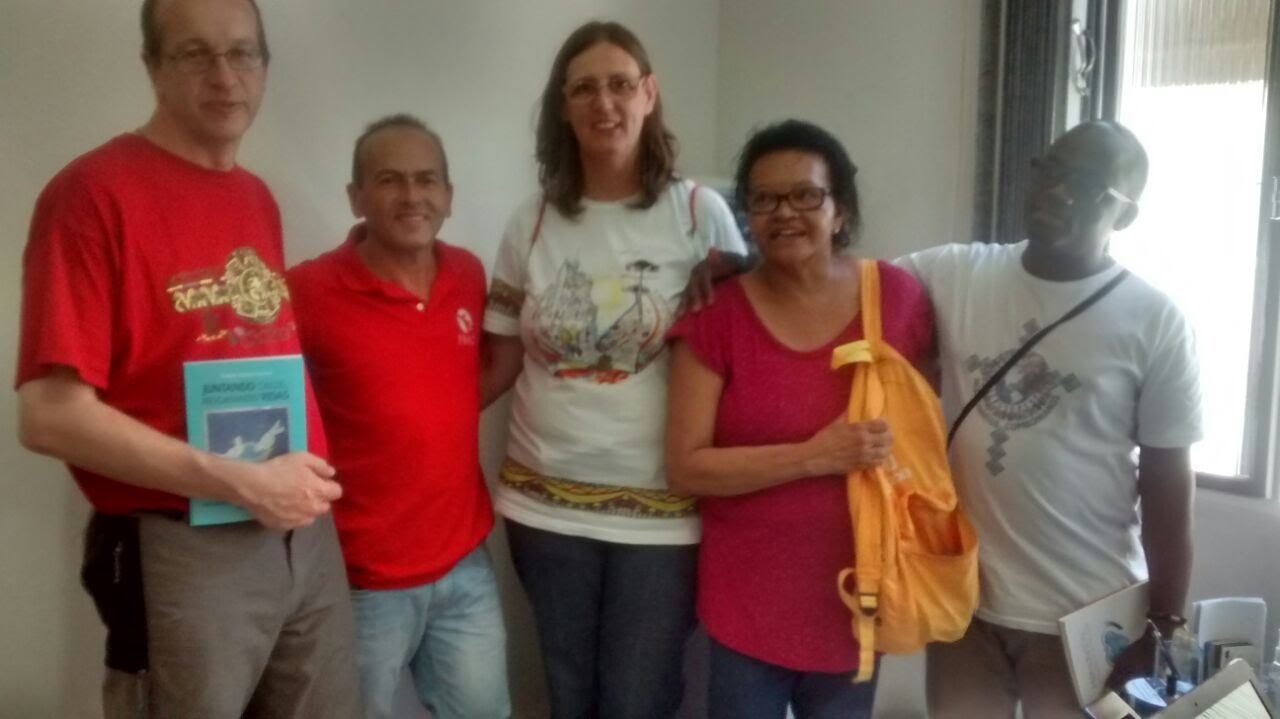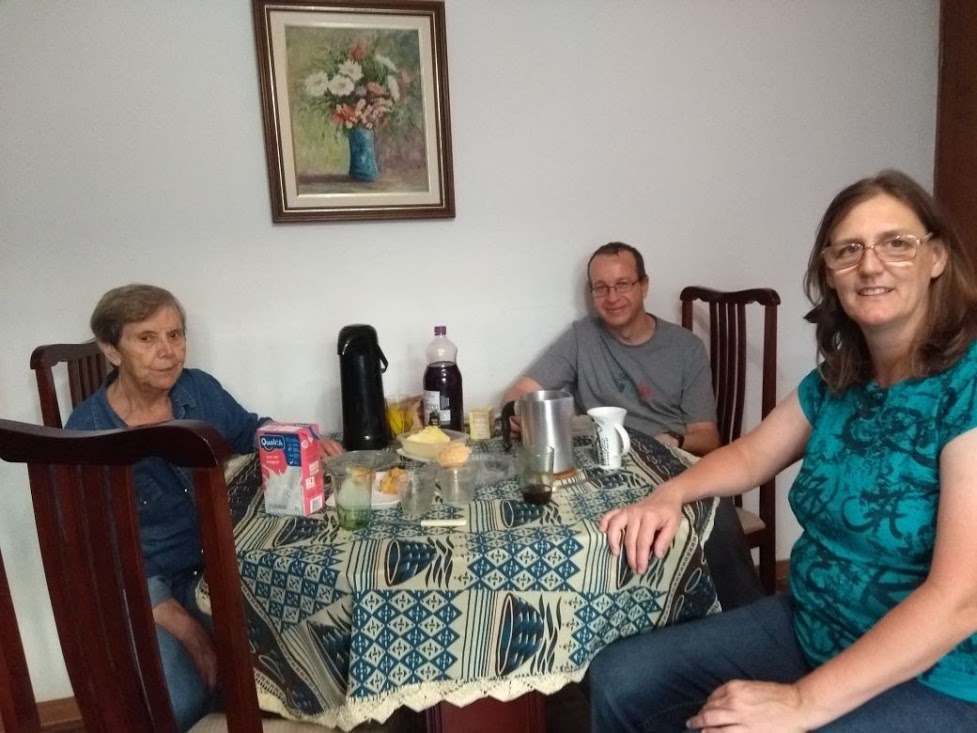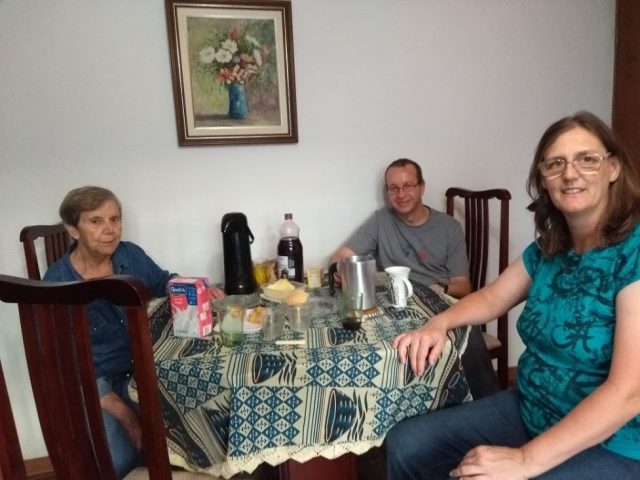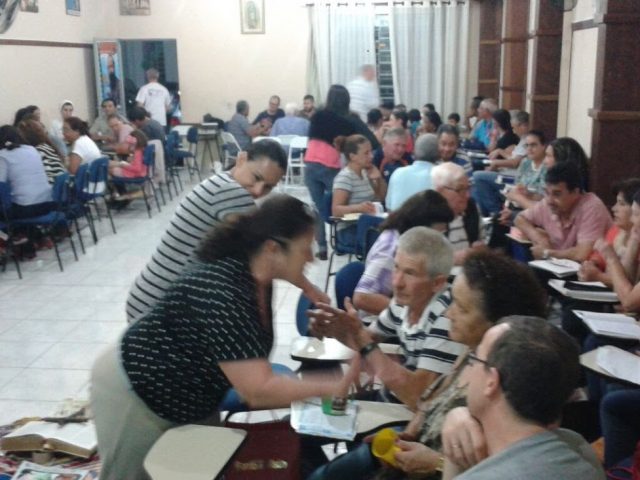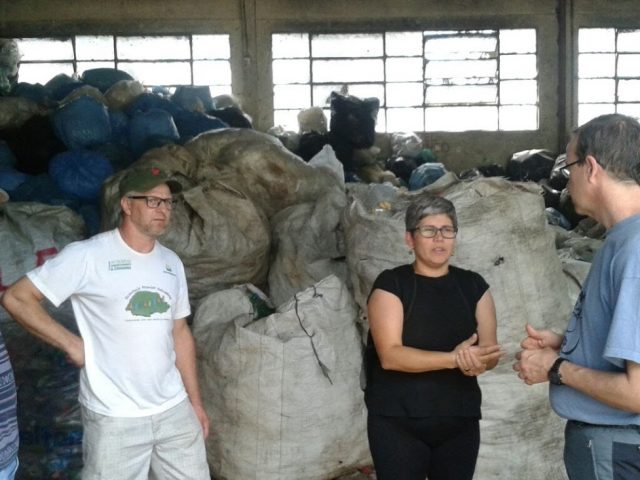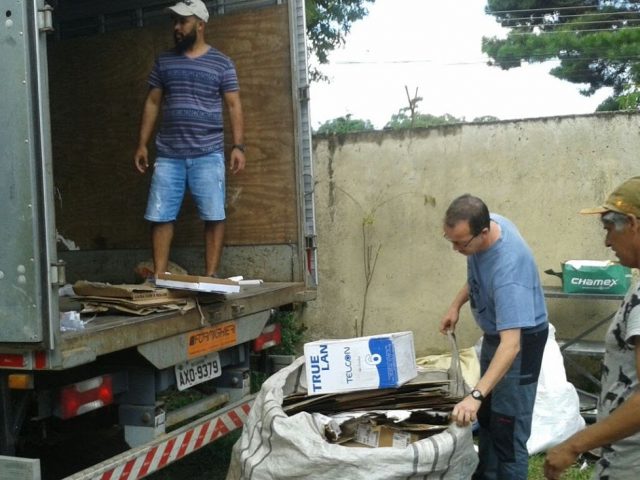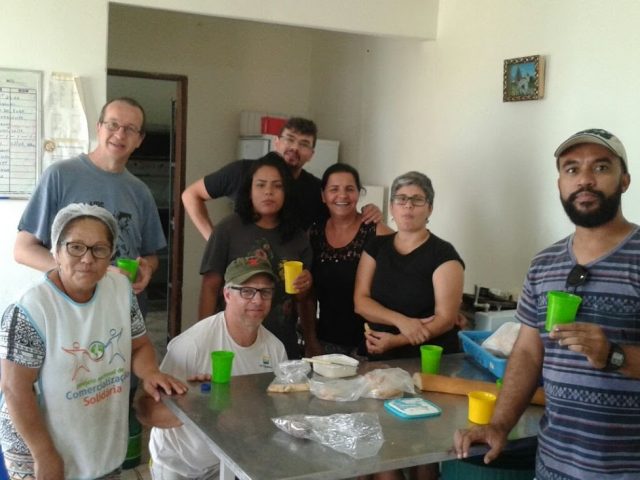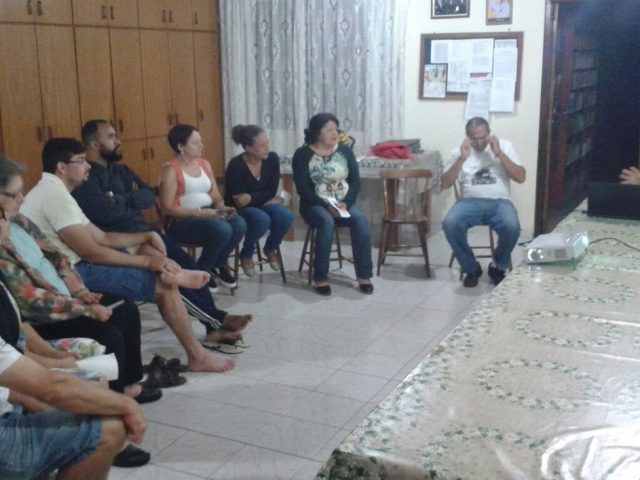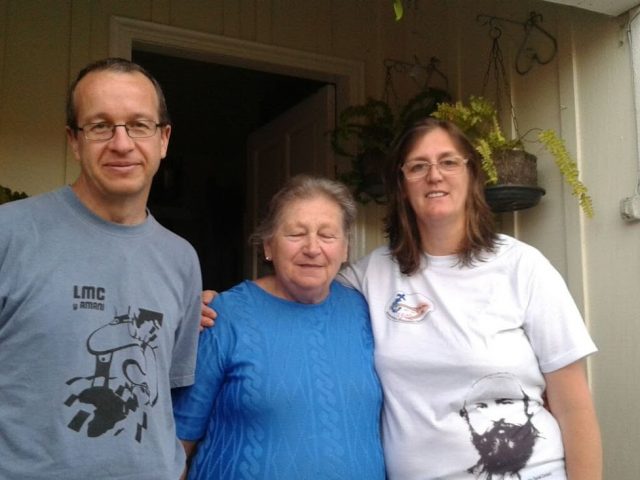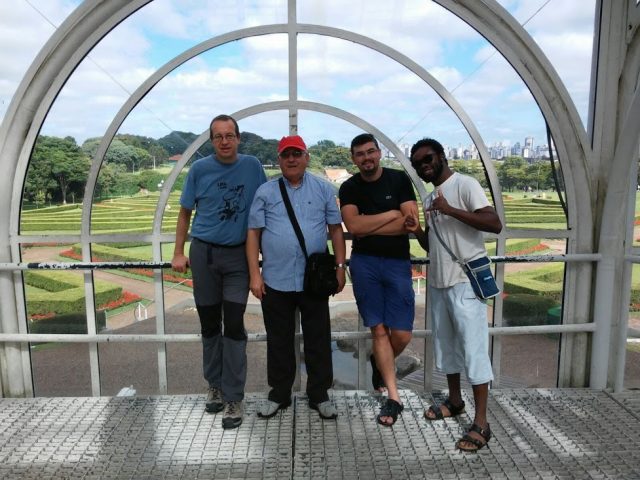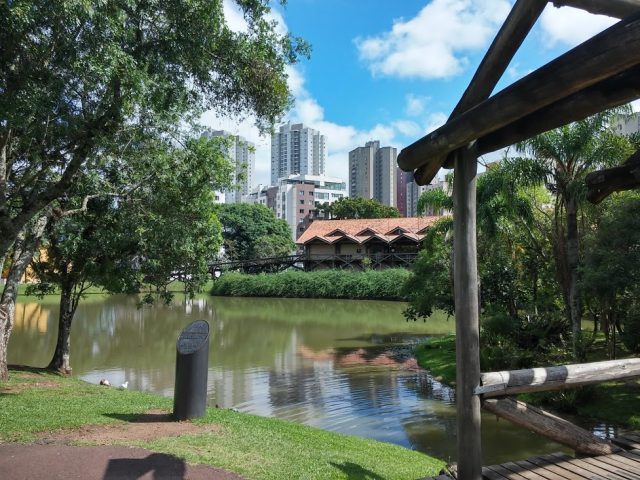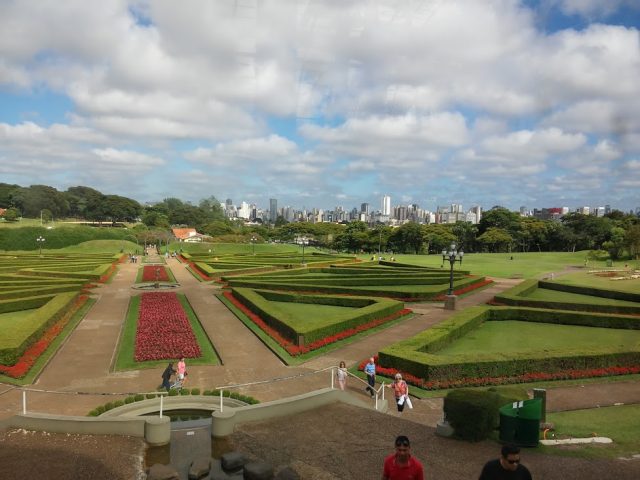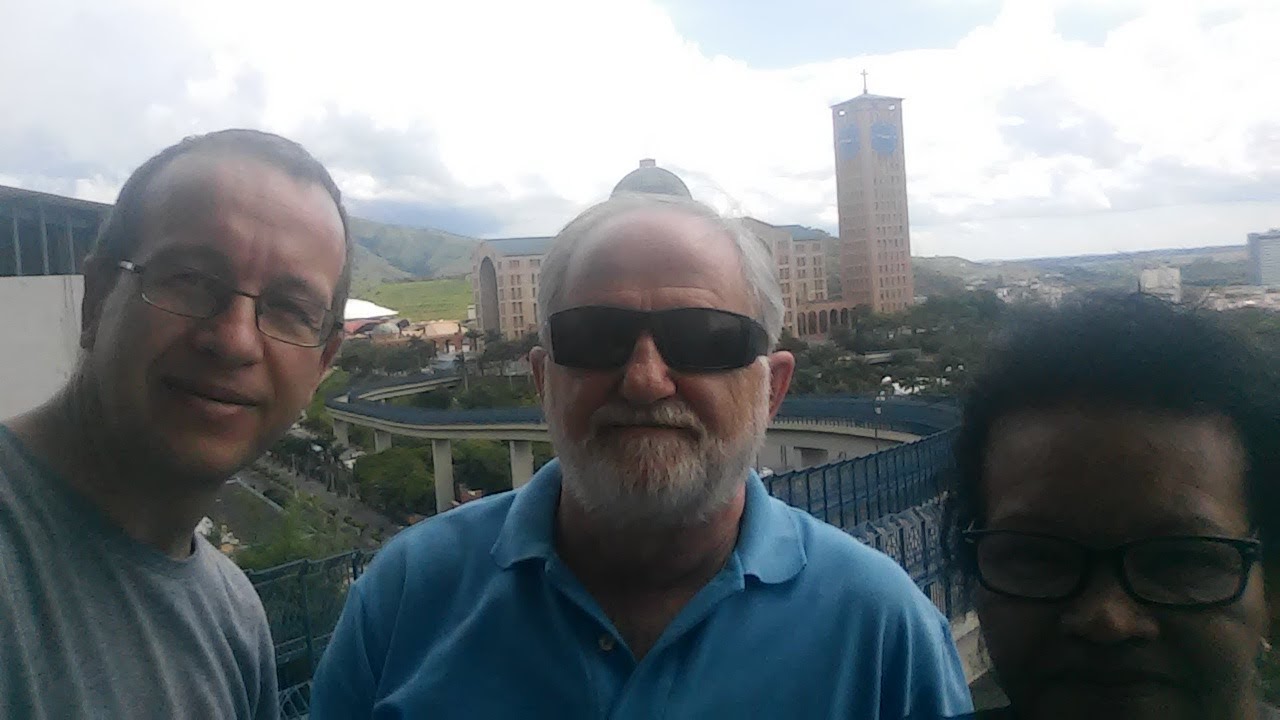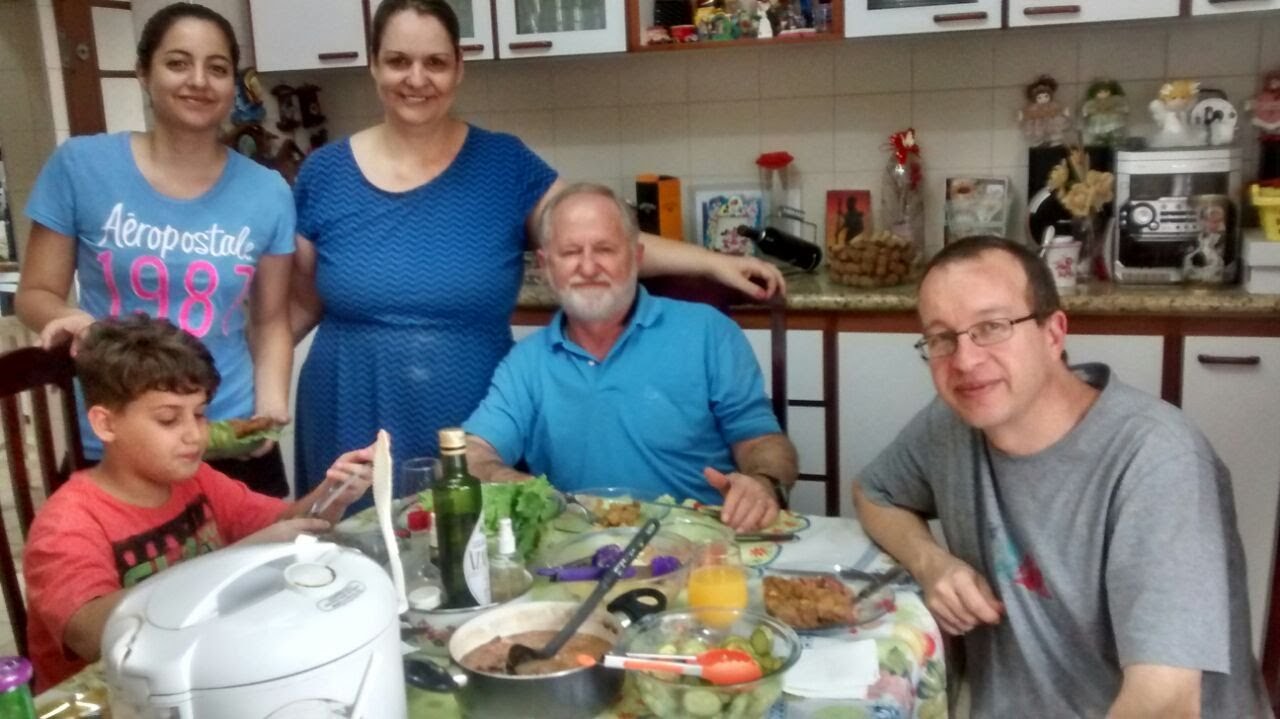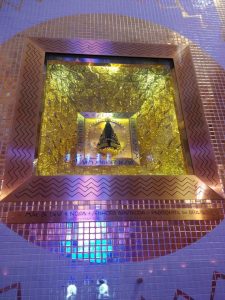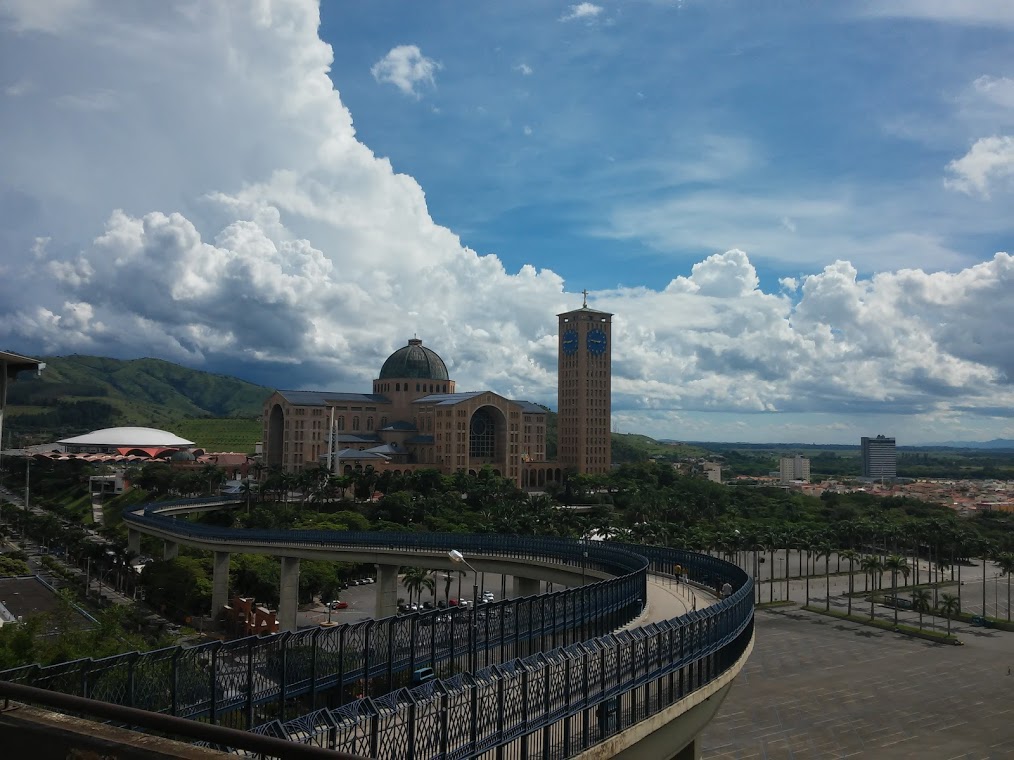 I am already in Açailândia, Maranhão. I am here with Xoancar, Liliana and Flávio. We gave our entire day to the work of “justice on the railway.” Starting from where it connects with the communities impacted by the mining companies, especially the Vale.
I am already in Açailândia, Maranhão. I am here with Xoancar, Liliana and Flávio. We gave our entire day to the work of “justice on the railway.” Starting from where it connects with the communities impacted by the mining companies, especially the Vale.
Just to give an idea of the dimensions, in this area we find the largest open air mine in the world, 500 meters deep. They take the mineral by train from here to the sea. These are trains of more than 300 cars.
Now they have doubled the railway and expect to have trains with more than 600 cars with trains moving day and night. A mine that could last about two centuries they expect to exhaust it in 60 years. And to achieve this, they disregard everything else.
The trains and the trucks cut through the communities or divide them. Contamination is so great that every single thing and the houses are always covered with a layer of iron dust, no matter how much you try to wipe it away. So you can imagine what it does to the lungs, the eyes and the skin of people. Many had to leave home because of sickness. Not to mention the acoustic contamination. Your porch is right on the iron manufacturing. The incandescent refuse piles up behind the houses and many children climb these mounds, but at times the outer cover that already cooled off will break and they burn themselves because beneath the iron is still as hot as lava.
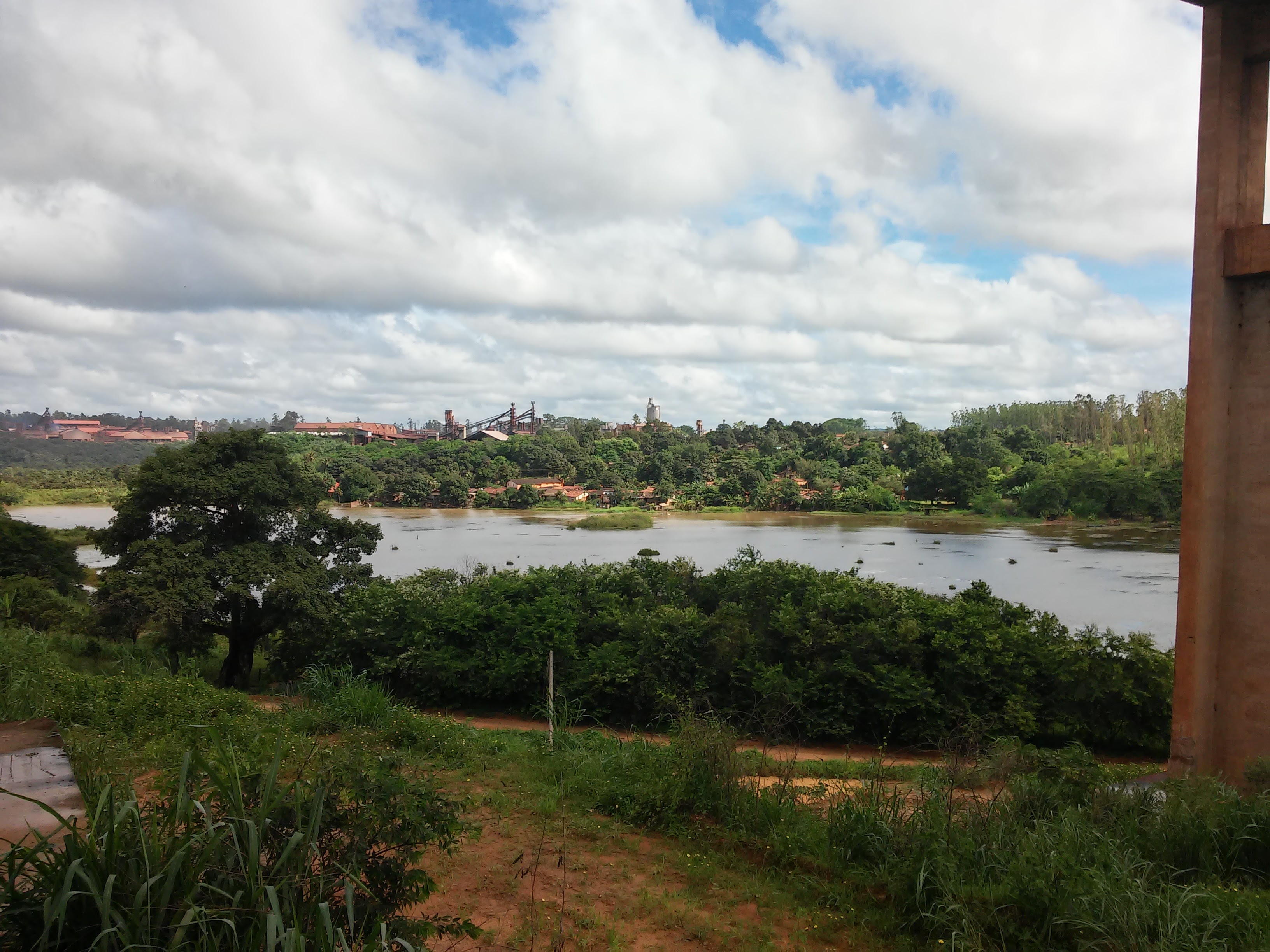 They told us of the struggle of the community to look for a place to stay, where each step towards the right to decent housing turns into a street fight. It is a well-organized and well aware community thanks, among other things, to the work and support of lay and religious Comboni missionaries who have offered formation, legal aid, structures… accompanying them in this struggle.
They told us of the struggle of the community to look for a place to stay, where each step towards the right to decent housing turns into a street fight. It is a well-organized and well aware community thanks, among other things, to the work and support of lay and religious Comboni missionaries who have offered formation, legal aid, structures… accompanying them in this struggle.
Here the CLM act as people educators and visit the communities (Many are rural reform settlements, namely people who occupy the land in order to be able to cultivate it and claim the right to the land which is guaranteed by the Constitution), give formation to leaders, support their demand, form pressure groups at the international level (the Vale is a large multinational corporation).
To get to know this activity a little better, in the afternoon we visited two communities along the rail line (now lines).
Trains of 300 cars go through here day and night every 30-40 minutes. They spread iron dust and blow the horn each time, day and night. This situation does not allow people to walk freely to the land they cultivate, or the children to go to school, or get out of town if there is an emergency because they do not want to build overpasses in each village and the communities have to fight for each one. Things have gotten worse now that the railway has been doubled and so has the number of trains. Several people have already died crossing or have had serious accidents.
Continuing my visit in Maranhão the other day I visited places that are very relevant to us, such as the Center for the Defense of Life and Human Rights and the Rural Family House.
The Center carries on several activities on behalf of the community and the youth (theater, dance, capoeira…), and it is open to the community and to its social struggles, but above all it follows as its special activity the fight against slave labor, a practice that is still very much alive in the 21st century.
 From there we moved to the rural Family Center with Xoancar and Dina. Young people come to study for a week, (morning, afternoon and evening) then the following week they go back to their community to practice what they learned. We were attended to by the current director, a former student of the RFC who, after attending the university, is now in charge of the program.
From there we moved to the rural Family Center with Xoancar and Dina. Young people come to study for a week, (morning, afternoon and evening) then the following week they go back to their community to practice what they learned. We were attended to by the current director, a former student of the RFC who, after attending the university, is now in charge of the program.
Xoancar now works in the “Justice on Rails,” together with Flávio and Liliana. He is beginning a new project of experimental ecological agriculture, sustainable construction and more. On the parcels of land around the Rural Family Center he will create a center of experimentation and reliable methods, both in agriculture and in construction, that will help the farming communities in the area, offering a place where people will be able to learn more sustainable models.
 These projects have come to be after a lot of work and reflection with the community, taken up by local people, for the majority formed at a university after we got involved with them and supported their projects. They always tried to empower the people involved and leave in their hand a top quality project. This work, with some financial problems but with much hope, has been going on for 18 years.
These projects have come to be after a lot of work and reflection with the community, taken up by local people, for the majority formed at a university after we got involved with them and supported their projects. They always tried to empower the people involved and leave in their hand a top quality project. This work, with some financial problems but with much hope, has been going on for 18 years.
Here ends my visit to the different places where we are present in Brazil as CLM. It has been a marvelous experience.
I leave here to go to the World Social Forum and the Comboni Forum due to take place in Salvador de Bahia.
Greetings.
Alberto




